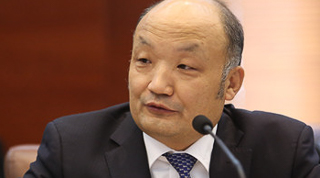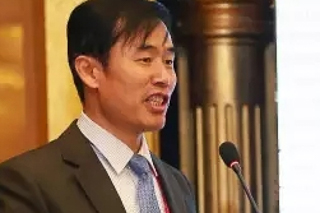New measures will reduce delays accessing innovative pharmaceuticals and medical devices, making it easier for foreign therapeutics to be sold in China. They will also motivate domestic firms to find new treatments.
opening up
CCP Central Office and State Council General Office released ‘Opinions’ on 8 October 2017 permitting the use of overseas clinical trial data in China. Expanded by China Food and Drug Administration (CFDA) in 28 draft regulations, including a revised Pharmaceutical Management Law, the measures enable foreign pharmaceutical firms to include China in phase I multi-regional clinical trials (MRCTs), the earliest stage. Molecules that prove promising and safe then move on to larger-scale phase II and III trials. The moves also simplify marketing permit procedures, so pharmaceuticals that survive all these phases abroad can be more rapidly available on the Chinese market.
access to healthcare
The changes will give citizens better access to medical innovations, argues Wu Zhen 吴浈 China Food and Drug Administration (CFDA) deputy director at a press conference. Only 30 percent of the 433 innovative pharmaceuticals (as opposed to ‘me-too’ or ‘me-better’ drug variants) launched worldwide between 2001 and 2016 gained approval for sale on the Chinese market; those that were approved entered the market up to seven years after their introduction in Europe and the US, said Wu. The glacial approval of new treatments puts Chinese cancer patients at a disadvantage, says Southern Weekly, noting that in 2015 the five-year survival rate in China was only half of the US rate in 2012.
Most people will only use innovative treatments if they are covered by insurance. The Opinions require the Ministry of Human Resources and Social Security to include them in basic health insurance packages, while also calling for medical institutions to use effective and reasonably priced pharmaceuticals. Innovative therapeutics tend to be expensive; other trends are already driving up healthcare costs, most notably
- political pressure to extend coverage to a larger part of the population, for instance through Healthy China 2030
- this seeks to increase average life expectancy to 79 by 2030, up from 76 in 2015
- population ageing
To control costs, the state is promoting
- synergy between healthcare, pharmaceuticals and medical insurance
- collective bargaining, with National Health and Family Planning Commission (NHFPC) calling on companies to join high-value medical device price negotiations in September 2017
- reforms that end pharmaceutical markups
- price-fixing collusion between pharmacies and hospitals is now ended, with new pricing models that reward specialists more for the time they spend with patients than on the drugs they prescribe
indigenous innovation
Despite collective bargaining that advantages local firms and uncertain inclusion in basic healthcare insurance, foreign pharmaceutical firms will benefit in the short run, taking market share from local producers of ‘me-too’ drugs. But involvement in MRCTs will give Chinese R&D better access to international clinical data, research facilities, testing populations and investments. These resources will help local firms catch up with the US, Japan and Europe within five years, claims an expert who helped draft the policy. Over the last three years, the bottleneck has shifted from review and approval to clinical trial capacity, says a senior pharma regulation expert. In response, CFDA said it will stop requiring prospective clinical trial institutions to apply for approval, instead requiring them only to file records.
The policy also calls for a marketing authorisation holder (MAH) system, which separates marketing and production permits. Previously, R&D firms needed to get a drug manufacturing licence before applying for its marketing permit. This costly procedure caused R&D firms to sell promising discoveries to established manufacturers, curtailing their yield on investment. MAH systems as used in Europe, the US and Japan offer more flexibility, allowing marketing permit holders to either produce on their own or license production to a third party.
international harmonisation
The makeover aligns China’s pharmaceutical policy with international practice in the wake of CFDA’s regulatory membership of the International Conference on Harmonisation of Technical Requirements for Registration of Pharmaceuticals for Human Use (ICH) in June 2017, joining institutional peers representing Europe, the US, Japan, Canada, Switzerland, Brazil and South Korea. This membership, commented CFDA, moves China towards adopting internationally endorsed technical standards and pharmaceutical guidelines.
Attracting FDI is a goal. At a CFDA press conference, deputy director Wu cited insufficient resources as the primary reason for lack of pharmaceutical innovation. In 2016, total Chinese pharmaceutical R&D investment amounted only to US$11 bn, the same amount spent on R&D by a single leading multinational pharma company (MNC), said Wu. While dominating global pharmaceutical R&D spending, the MNCs are nevertheless scaling down their China operations. Their shift towards outsourcing empowers competitors like India, adding urgency to government initiatives to improve regulatory frameworks.
Another point is to sell foreign pharma on China as a reliable site for clinical trials. Amendments to the Pharmaceutical Management Law would ban anyone in the pharmaceutical industry caught fabricating data from operating for ten years. The Opinions call for improving data reliability with an independent ethics committee. The CFDA announced it would improve IP protection by automatically checking applications against a patent database, identifying and resolving potential IP conflicts before pharmaceuticals are approved. Agencies will also guarantee data confidentiality and offer patent holders compensation if the procedure causes them delays or otherwise infringes on their rights.
Questions over implementation remain. CFDA will step up training and oversight of its personnel, but given China has developed generics mostly for its domestic market, CFDA experience with large, international trials of innovative pharmaceuticals is limited.
roundtable

Su Ling 苏岭 | Shenyang Pharmaceutical University drug regulatory science research institution director
A seasoned pharmaceutical regulator, Su started his career in the Ministry of Health’s Drug Administration Department before moving to the US Food and Drug Administration, then heading up new drug development at several pharmaceutical giants including Merck, Roche, Wyeth and Novartis. He was the first Chinese to chair the Drug Information Association, a global network for developing healthcare products. Su praises the reform of drug and medical device approval as enabling China to catch up with the world. While the local pharmaceutical industry will complain, he concedes, innovation through competition is the way forward. More multinational companies will, he expects, conduct clinical trials in China.

Song Ruilin 宋瑞霖 | China Pharmaceutical Innovation and Research Development Association (PhIRDA) president
With a law degree from China University of Political Science and Law, Song lobbies for medical and pharmaceutical reform. Between 1987 and 2006, he researched, drafted and reviewed policies, rules and laws. In the next two years, Song became a visiting scholar at the University of Sydney, researching medi-pharma and healthcare institutional reforms. Upon his return, he resumed his career as mediator between regulators and the industry. He helped draft NHFPC’s ‘Healthy China 2030’ plan and became PhIRDA president. Song categorically opposes market or capital restrictions. Though current pharmaceutical institutional reform is as tough as China’s entry to the WTO, he argues, the implications are similarly profound, since protectionism has failed to generate innovation. Lifting policy barriers, adopting global standards and opening up to foreign products and private investment will give Chinese people access to higher-quality health services.

Cheng Zengjiang 程增江 | Kebeiyuan Biopharma Technology Company president, Tongxieyi Forum founder
With a bachelor’s degree from the Shanghai Second Military Medical University and a PhD from Beijing Academy of Military Medical Sciences National Biomedical Analysis Centre, Cheng is an authority on pharmaceutical chemistry, manufacturing and controls (CMC). He has experience in new and generic drug testing, quality examination and bioequivalence analysis, both in the military and in private companies. He also founded the Tongxieyi Forum, China’s leading open platform for pharmaceutical R&D analysts. Launched in 2007, Cheng’s company Kebeien provides CMC solutions. The development of generic drugs will only be possible, argues Cheng, via improving quality control and streamlining approval procedures.

Liu Pei 刘沛 | CFDA Department of Legislative Affairs counsel
Appointed head of CFDA Policy and Regulation Department in 2008, Liu has drafted and revised key policy documents, notably State Council’s ‘Medical device supervision and management measures’ and ‘Dietary supplement supervision and management measures’. After improving CFDA’s management of medical device callbacks, drug quality and approval of new products, Liu chaired the State Pharmacopoeia Commission and CFDA’s Complaint Centre. In 2016, she was interim coordinator of the CFDA Medical Device Supervision Department, when its chief was investigated for corruption, before returning to assist CFDA’s legislative affairs. Liu argues for the current revision of pharmaceutical policy to balance innovation and supply, global standards with Chinese characteristics, and vision and reality.
context
8 Nov 2017: CFDA issues 'Notice on basic requirements for clinical evaluation materials for in vitro diagnostic (IVD) reagents to be exempt from clinical trials'
3 Nov 2017: CFDA issues 'Announcement on record-filing for medical device sales'
1 Nov 2017: CFDA Centre for Medical Device Evaluation (CMDE) calls for comment on 'Guiding principles on designing clinical trials of medical devices' until 26 November 2017
31 Oct 2017: 'Monitoring and management regulations on medical devices' is released for comment until 12 November 2017, allowing overseas clinical trial data meeting Chinese requirements on medical device registration to be used in applications for Chinese registration
27 Oct 2017: CFDA calls for comment on 'Management regulations for pharmaceutical clinical trial institutions' until 30 November 2017. The regulations only require a clinical trial institution to file a record before operation, whereas it previously needed to submit applications for qualification
26 Oct 2017: Ministry of Science and Technology releases ‘Regulatory streamlining for collecting human genetic resources for MRCTs’
23 Oct 2017: CFDA calls for comment on Pharmaceutical Management Law and 'Management measures on pharmaceutical registration'. Revisions include implementing a marketing authorisation holder system and protecting data of pharmaceuticals that are innovative or that target rare or children’s diseases
17 Oct 2017: CFDA releases two documents on pharmaceutical manufacturing sites for comment until 13 November 2017
13 Oct 2017: CFDA and NHFPC issue 'Announcement on biological equivalence trials in clinical trial agencies'
11 Oct 2017: CFDA issues 'Notice on adjusting the registration process for pharmaceutical imports’, allowing phase I trials to proceed synchronously with other countries, if a MRCT of a pharmaceutical—except for biological products for preventive use—is conducted in China
8 Oct 2017: Communist Party Central Office and State Council General Office issue ‘Opinions on deepening approval system reform to encourage drug and medical device innovation’ to further accelerate drug approval and boost medtech innovation. The document streamlines clinical trial management, approvals, R&D and market rules
7 Sep 2017: NHFPC invites companies to join national high-value medical device price negotiations
4 Sep 2017: CFDA revises 'Medical device classification catalogue’, to come into effect on 1 August 2018
26 Feb 2016: CFDA releases ‘Opinions on prioritising evaluation and approval procedures for drug registration’
11 Nov 2015: CFDA releases ‘Review and approval policies for drug registration’
18 Aug 2015: State Council releases ‘Opinions on reforming the review and approval systems for drug and medical devices’, centralising approval processes and unifying standards and deadlines
11 Jul 2013: CFDA releases ‘Opinions on deepening reform and encouraging innovation for the pharmaceutical industry’
